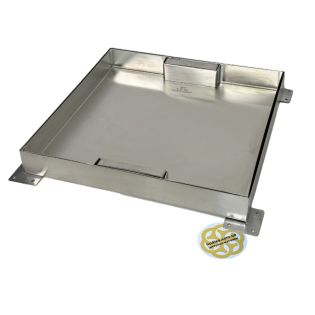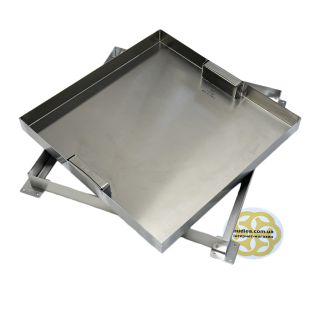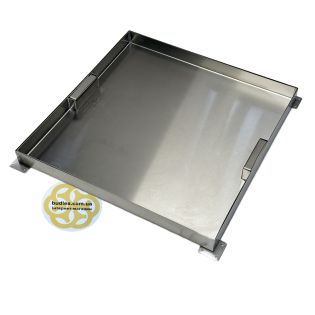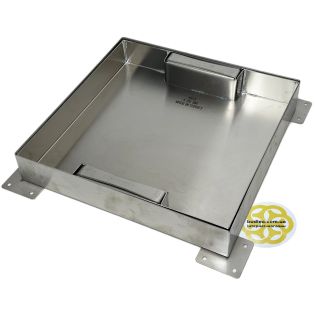Why do we need inspection hatches
The inspection hatch is a special hole with a door, with which you can hide various communications, close the entrance to the basement, etc. Such a hatch is installed in almost every private house and apartment, for example, under meters, pipes with switches and water filters.
In fact, it is a hidden niche that can be located in the ceiling, floor or wall, it is closed by a door for quick access to wiring or necessary communication. Butt joints for pipes, ventilation and electrical communications are mounted in such nodes. Basically, inspection hatches are used to conceal non-aesthetic cables that can spoil the interior, but at the same time provide quick access to them.
Usually such structural holes are laid when designing a house. If they are not provided and all cables are built into the wall, then when clogging, locking and breakthroughs will have to destroy the wall and resume repairs again, which is very expensive. To exclude this, you need to clarify this point separately.
What to do if the inspection hatch is not installedIf the revision hatch is not provided in the house project, and the building has already been built, then there is no need to panic.
It is very simple to build such a revision hatch yourself. To do this, depending on the selected model (aluminum or steel), a construction is made of drywall, panels or profile, or simply embedded in the wall.
The most popular option is a wall hatch, it is installed on a frame made of wood or metal and can be fixed to the wall. Revision doors are inserted into this design. If this is a floor hatch, then in this case it is better to install a ready-made structure.
What kind of revision hatches can there beBefore choosing revision hatches, you need to weigh all the pros and cons of aluminum structures and steel.
Aluminum ones are coated with a special powder paint that prevents corrosion, and they are also very light, which makes it possible to install them even on the ceiling. But steel, though heavy, will be reliable in use.
The opening mechanism also matters. They can be either with a conventional opening mechanism by pressing, or they can be opened with a special suction cup handle. Revision hatches can go under paint, tile mosaic. And the design itself will depend on the purpose of the hatch.
The main thing that should be is that the hatch should coincide with the placed tile and be sized by 2 or other paired numbers of tiles.
Additional products
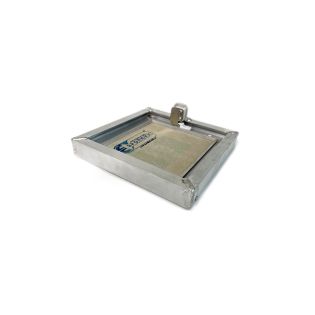 Revision wall hatch BOX 200x200 mm, push, aluminium, paintable, wallpaper,
Revision wall hatch BOX 200x200 mm, push, aluminium, paintable, wallpaper,
 Revision wall hatch STANDART 200x200 mm, push, aluminium, paintable, wallpaper
Revision wall hatch STANDART 200x200 mm, push, aluminium, paintable, wallpaper
 Revision wall hatch UNIVERSAL 200x200 mm, push-on, aluminium, tileable
Revision wall hatch UNIVERSAL 200x200 mm, push-on, aluminium, tileable
 Inspection wall hatch EURO ECO 200x200 mm, steel, for tiles
Inspection wall hatch EURO ECO 200x200 mm, steel, for tiles
 Inspection wall hatch EURO-N 200x300 mm, steel, push, for tiles
Inspection wall hatch EURO-N 200x300 mm, steel, push, for tiles
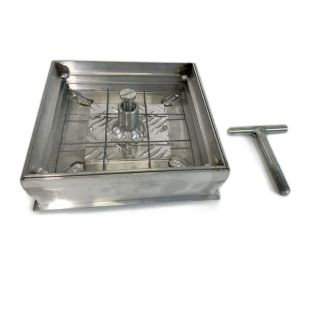 Inspection floor hatch LIGHT 200x200 mm, aluminium, for flooring
Inspection floor hatch LIGHT 200x200 mm, aluminium, for flooring
 Inspection floor hatch POWER 600x600 mm, steel, with air springs, for tiles, laminate
Inspection floor hatch POWER 600x600 mm, steel, with air springs, for tiles, laminate

